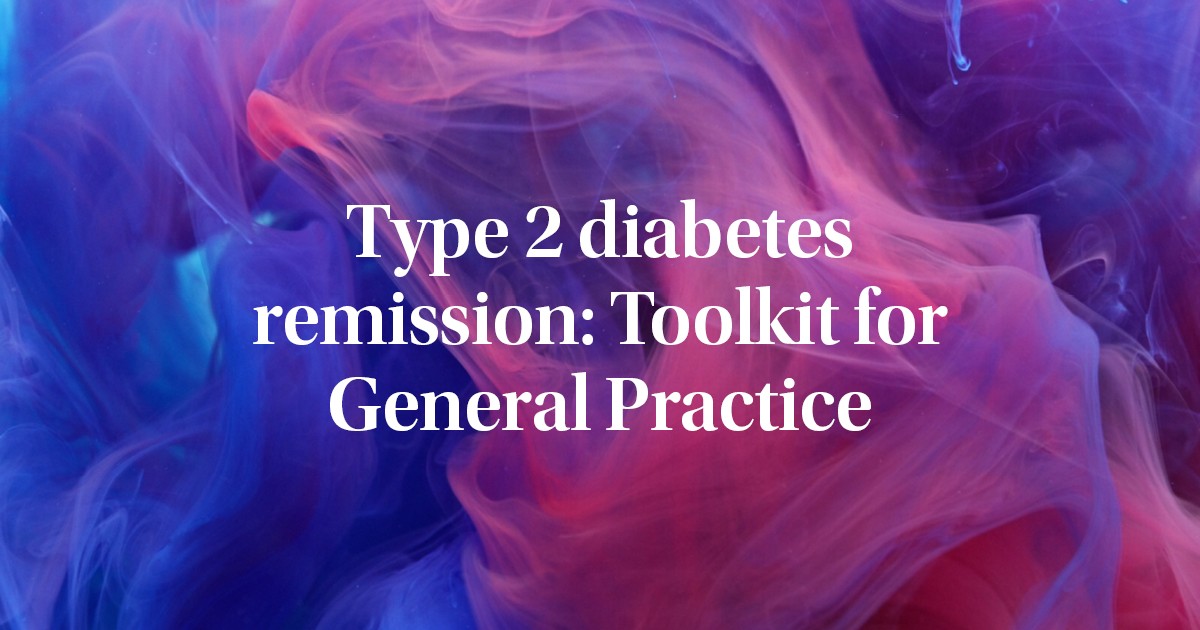Chronic kidney disease (CKD) affects around 8% of the population (Stevens et al, 2007). Although the majority have mild to moderate disease (stage 3a or 3b), they are all at increased risk of morbidity and mortality from cardiovascular (CV) disease (Atkins, 2005), as well as being at risk of progression to more advanced stages.
A “care bundle” is a specific tool with clear parameters. It has a small number of elements that are all scientifically robust, that when grouped together, rather than being undertaken as individual procedures, create much improved outcomes (Institute for Health Improvement, 2006).
Background to the study
Early identification and optimal management of CKD and its associated risk factors reduce the CV burden on the NHS and control the progression of CKD, reducing the morbidity and cost of renal replacement therapy.
Despite recent NICE (2008) guidance for the management of CKD in primary care there is significant variation in clinical practice (East Midlands Public Health Observatory, 2010).
Although NICE published the evidence for managing kidney disease in primary care in 2008, inconsistencies remain. First, there is a gap between QOF 2008/2009 nationally reported prevalence data (4.1%; QOF Data, 2008) and known CKD prevalence (around 8%; Stevens et al, 2007). Second, NICE (2008) stresses the importance of blood pressure (BP) control in delaying progression of CKD. It recommends a target BP of 120–139/90 mmHg for people with CKD with a target of 120–129/80 mmHg for those with CKD and diabetes and/or proteinuria, whereas the current QOF threshold for achievement is 140/85 mmHg (British Medical Association and NHS Employers, 2009).
CKD in people with diabetes can be associated with inadequate BP control (Ravera et al, 2009; Leoncini et al, 2010), so it is possible that the clinical care of CKD is compromised by clinicians treating to QOF thresholds rather than NICE targets.
Proteinuria is an independent risk factor for CV disease and a strong risk factor for CKD progression, yet data from the author’s ongoing quality improvement (QI)-CKD study (de Lusignan et al, 2010) have demonstrated that the presence of proteinuria is poorly documented. There is also variation in practitioner understanding of the management of CKD (John et al, 2009) and of user participation in their care (Thomas et al, 2008). Furthermore, published
data on involvement and education of the person with CKD in its early stages are sparse, and yet evidence to emphasise its need is clear (Mason et al, 2008).
Reliably delivering evidence-based healthcare remains a challenge. In the UK, care bundles have been shown to reduce inpatient mortality (Robb et al, 2010). However, care bundles have not yet been developed for use in a primary care setting. Neither has a care bundle been developed specifically for CKD. In summary, there is a need to improve the consistency and quality of care for people with early CKD.
Aims
The QI-CKD project is a QI programme coordinated by Kidney Research UK, the country’s leading charity funding research into the prevention, treatment and management of kidney disease. Collaborating teams at St George’s University of London and the University Hospitals of Leicester NHS Trust are conducting the research, supported with a charitable grant from the Health Foundation and the Edith Murphy Foundation. The aim is to develop, implement and evaluate a range of interventions for CKD in primary care and deliver the evidence base to enhance quality of care and treatment within the community.
This article describes one part of the project that aims to improve the management of people with diabetes and CKD in primary care, using a care bundle. The objectives of this pilot project are to implement the bundle in one GP practice and achieve >95% compliance.
Methods
Writing the care bundle for CKD
The CKD bundle was developed in two parts: practitioner (clinical) and patient (self-management) aspects. The definition and writing of the practitioner aspects of the care bundle was carried out by an expert group, which comprised a patient representative and hospital and primary care healthcare professionals. The process was facilitated by a fellow of the NHS Institute for Innovation and Improvement and the group met on four occasions during 2008. The practitioner bundle components were developed by this group and the process
also involved consultation with four independent nephrologists.
The practitioner bundle, based on NICE (2008) guidance, consists of four practical activities that have to be applied when people with CKD attend for clinic: recording people with stage 3–5 CKD on a register, measuring proteinuria, prescribing blood pressure medication where necessary, and assessing CV risk (using the QRISK assessment tool). The difference between this activity and normal care is that all activities have to be carried out at the same consultation (Box 1).
Another expert group (with high numbers of patients) developed the patient aspects of the bundle, including measuring confidence in self-management, written information and opportunities for group education.
Implementation of the care bundle
One GP practice in South East England implemented the practitioner aspects of the care bundle for CKD during 2009. Another GP practice in the Midlands piloted the patient self-management tools in 2009 and the results of this pilot will be reported separately in autumn 2010.
The implementation of the practitioner aspects will now be described. Baseline audit data in the care bundle practice was carried out. The care bundle was applied on people with CKD stage 3–5. At the start of the study, inclusion criteria were people who:
- Attended a nurse-led clinic for long-term conditions.
- Were diagnosed with type 1 or type 2 diabetes.
- Were less than 75 years old.
These inclusion criteria were applied because large numbers of people presenting with CKD at the outset were anticipated and the preferred option was to implement the bundle in a smaller high-risk group. However, the inclusion criteria were later amended to include all people with CKD (not just diabetes) without an upper age limit, as the anticipated large numbers of people with stage 3–5 CKD did not materialise. This was because the long-term conditions clinic in which the bundle was being piloted included all long-term conditions (not just vascular conditions) and by chance at the start of the study other people without diabetes made up the majority of attendees.
The overall aim was to achieve >95% compliance with the care bundle (all components carried out at each consultation) through the application of a recognised QI method to achieve systematic reliability.
Quality improvement methodology
As the GP practice was not already achieving 95% or more composite reliability in every aspect of the care bundle, the lead GP and practice nurses undertook an internal improvement project to achieve this. This project involved iterative cycles of improvement, based on the well-established Deming “model for improvement” methodology: plan, do, study, act (PDSA) cycles.
A number of tests of change were implemented to increase compliance to the bundle, including:
- Directly identifying people with diabetes and then encouraging them to come to clinic. At this point it was not known if they had CKD, as the CKD register was not verified for accuracy at the start of the study. The accuracy of the CKD register improved as the study progressed as people with diabetes were directly being called up for a consultation and then asked to provide a blood sample(s) for estimated glomerular filtration rate (eGFR) if required.
- Undertaking the collection of spot urine samples, rather than early morning urine samples, to improve levels of albumin-creatinine ratio collection (for proteinuria quantification).
- Amendment of the wording of the care bundle to include specified time frames within which to act, as it is not possible to measure or treat proteinuria and BP to target within the same consultation (Box 1).
Results
Data were collected using a care bundle data collection sheet that was completed by hand on hard copy by practice nurses.
A total of 114 people with CKD attended the clinic between April 2009 and January 2010. Of these >80% had diabetes. This represents approximately 1% of the practice population (12000). The high prevalence of diabetes is because people with diabetes (at high risk of CKD) were directly called to clinic 3 months into the study, as a result of low numbers with CKD at the start. Data were collected during each consultation.
Figures 1 and 2 show how the reliability of different components of the bundle improved over time. Figure 1 shows how the reliability of the CKD register component increased once a time limit was included. If practice nurses had access to only one, not two, eGFR results (two results more than 3 months apart are required to diagnose CKD), it took a few days for results of a second blood test to be returned. Once there had been the addition of a 5-day turn-around time, the register component of the bundle was able to be achieved much more easily.
In addition, if an albumin:creatinine ratio (ACR) was taken immediately following a consultation, rather than individuals being sent home with a urine pot to return an early morning sample, the reliability increased. Although NICE (2008) states that it is preferable for an early morning sample to be taken, laboratories are able to process ACRs if the sample is reasonably concentrated.
Figure 2 shows how difficult it was to achieve NICE (2008) targets for blood pressure control. Possible reasons for this are discussed in the next section. Although compliance with BP targets improved (<130/80 mmHg for diabetes), 95% compliance with the bundle at the end of the pilot study was not achieved.
Discussion
Practice nurses reported that the care bundle can be easily applied within the usual consultation time, taking less than five additional minutes. Other benefits of applying the care bundle included identification of a small number of people at risk of progressive CKD who required referral. From the perspective of a person with diabetes, some queried why CKD had not been picked up before, which required explanation and assurance.
Using the QI methodology, this pilot study was able to show improved reliability in the majority of bundle components, although the BP target never achieved more than 50% reliability. There are a number of possible reasons for this. It is recognised that the sample was small and the pilot study time frame was relatively short. Improvements in BP control can take time and are dependent on a number of different factors. These factors include practitioner concerns about potential effects of bringing BP too low in people with diabetes; differences between NICE targets and QOF payment thresholds for BP; plus the reliance on individuals understanding the importance of BP control and, as a result, taking their tablets as prescribed (Chatterjee, 2006).
It is possible that the multifactorial nature of achieving evidence-based BP targets requires intensive QI methods that take time and effort over and above those targets that simply require a practical activity to be undertaken, such as ordering blood and urine samples.
The pilot phase was completed in early 2010. Phase II is now underway with recruitment of a number of GP practices to take part in the ENABLE-CKD programme, funded by the Health Foundation through their Closing the Gap initiative. The ENABLE-CKD study is recruiting GP practices in a number of locations in England, Scotland and Wales and will implement and test both the practitioner and patient aspects of the bundle.
Conclusion
The care bundle approach has been undertaken in primary care for the first time and will be rolled-out to additional practices in 2010. Early findings have shown that it may be challenging to obtain 95% reliability of the care bundle for CKD but that the PDSA cycle achieved good results. It is hoped that this novel approach will improve the community care of people with diabetes and kidney disease, over and above the CKD components of QOF.
Acknowledgements
Imran Rafi, Kate Barnes and Elizabeth George. Written on behalf of the Quality Improvement in Chronic Kidney Disease (QI-CKD) study.




Risk of CVD and cardiovascular mortality differ between people with type 1 and type 2 diabetes, and between men and women.
2 Oct 2025